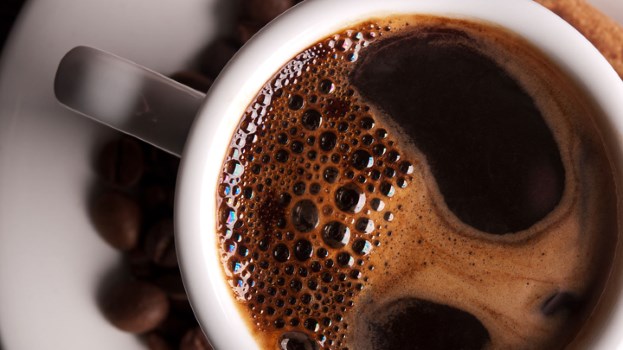"Is it the eye-opening benefits of caffeine, or coffee’s rich flavor and aroma that we crave so passionately? It’s likely the combination of its assets that makes java the daily beverage of choice for 54 percent of adult Americans, according to the National Coffee Association. What most of those coffee drinkers are unlikely to think about, however, are the health benefits — and potential risks — of caffeine, the stimulant found in coffee, tea, and many soft drinks and energy beverages. Here are 10 essentials facts you should know about caffeine.
1. Caffeine May Lower Skin Cancer Risk:
A handful of studies suggest that caffeine could potentially lower your risk for skin cancer. In an observational study (a study that shows an association but not causation) published in Cancer Research in July 2012, researchers using data from the Nurses' Health Study and the Health Professionals Follow-Up Study reported that the higher a person’s caffeine consumption, the lower their risk of developing basal cell carcinoma. Similarly, in two 2015 studies, one published in February in the Journal of the National Cancer Institute and another in November in Epidemiology, researchers linked higher caffeine intake to a lower risk for melanoma, the deadliest form of skin cancer. But other factors besides caffeine could be at play, suggests the Skin Cancer Foundation. For example, it’s possible that people who drink a lot of coffee tend to work indoors and get less sun exposure than do people who drink less coffee.
2. Caffeine Makes Working Out Easier:
Having a couple of coffees at your favorite coffee shop before you head to the gym could power up your workout, says Michael Duncan, PhD, professor of exercise science at Coventry University in the United Kingdom. In an experimental study he conducted, published in The Journal of Nutrition, Health & Aging in December 2014, 19 healthy older adults between ages 61 and 79 who drank the equivalent of four cups of instant coffee or two cups of filtered coffee just before exercising were better able to invest effort in their workout than folks who didn’t get a caffeine boost. They also performed better at tasks like arm curls and a six-minute walk. Even their manual dexterity improved, notes Dr. Duncan.
3. Caffeine Can Help Control Pain:
There’s a reason you can buy over-the-counter pain relievers that combine ibuprofen, acetaminophen, or aspirin with caffeine: For some people, these combinations work better than the painkiller alone. Such products are often marketed as treatments for headaches or menstrual cramps, but these aren’t the only types of pain that may be helped by a dose of caffeine.
In an analysis of four randomized, double-blind studies published in July 2015 in the Cochrane Database of Systematic Reviews, researchers found that a single dose of 200 milligrams (mg) of ibuprofen plus 100 mg of caffeine was substantially more effective than a placebo at providing postoperative and migraine pain relief over six hours.
While that particular drug combination is not commonly available in a commercial product, that dose — or a close approximation of it — can be achieved by taking 200 mg of ibuprofen along with a moderately strong cup of coffee.
4. Caffeine May Improve Your Memory:
Caffeine consumption was associated with better memory and better executive functioning (planning, organizing, and time management) in healthy older adults (average age 74) in an observational study published in July 2015 in Alzheimer’s & Dementia. The researchers, from the Brigham and Women’s Hospital in Boston, found that any amount of habitual coffee consumption was helpful. Other studies performed on mice have suggested caffeine might be helpful in treating Alzheimer’s disease.
5. Coffee, in Moderation, May Have Heart-Healthy Benefits:
Studies have shown that drinking three to four cups of caffeinated coffee a day is linked to a lower risk of developing stroke and coronary artery disease, says Susanna C. Larsson, PhD, associate professor in the Institute of Environmental Medicine at the Karolinska Institute in Stockholm, Sweden. What’s more, according to her observational study published in BMC Medicine in September 2015, drinking caffeinated coffee doesn’t appear to increase your risk of developing atrial fibrillation, the most common type of irregular heart rhythm. “Caffeine might be one of the components in coffee that reduces the risk of stroke and coronary artery disease,” says Dr. Larsson".
Are you a coffe lover? You should share this!!
Fuente: www.everydayhealth.com
